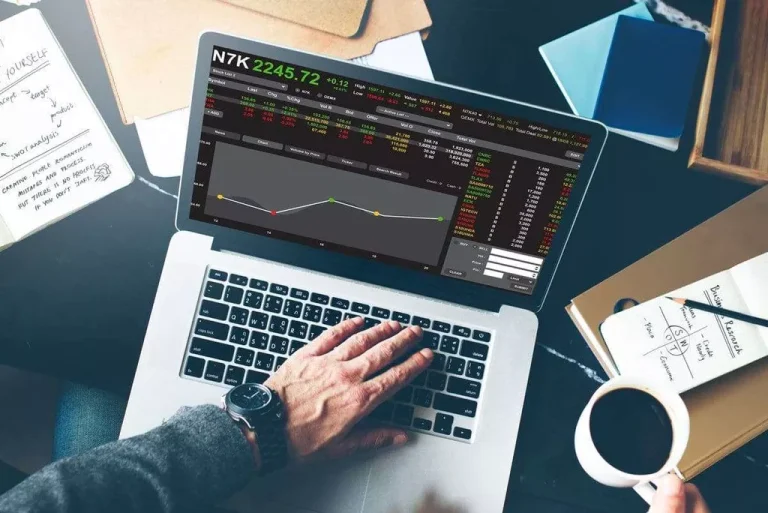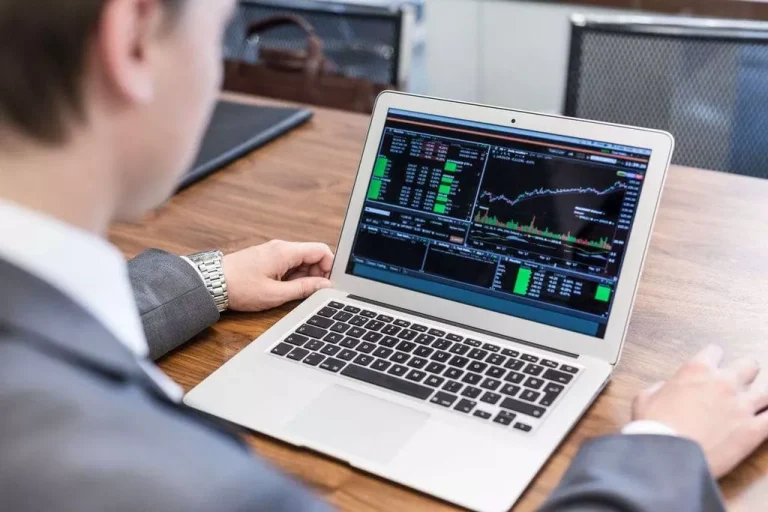Explained: Prediction Markets Medium
Content
Risks include market volatility, liquidity issues and reliance on oracles, which, if compromised, Decentralized application could lead to misinformation and financial losses. Any market (whether it is one where people exchange goods/services or a market where people trade assets) is bound to react quickly to changes in the sociopolitical, cultural and economic environments. Depending on which price prediction you want to place your bet on, you will be able to buy (for “Yes) or sell (for “No”).
The unlikely reality of Bitcoin as a reserve currency
Prediction markets are collections of people that are speculating on the outcome of an event. In fact, on just the Presidential Elections Winner market, more what are prediction markets than $283.5M has been wagered, with the odds heavily favoring the Republican candidate, Donald Trump as the victor. User experience on crypto prediction platforms is also likely to improve as the underlying technology advances, making it easier to participate in these markets. Suppose shares representing Team A and Team B are trading at 55 cents and 45 cents, respectively.
Is It Profitable to Trade in Prediction Markets?
Gnosis also built its own Layer-2 solution, the Gnosis Chain, to address scalability and efficiency, offering smart contract functionality at reduced costs. While Polymarket focuses on simplicity and accessibility, Gnosis aims to provide an integrated and versatile platform for the Ethereum community, catering to a broader range of applications. Polymarket differs from traditional prediction https://www.xcritical.com/ markets like PredictIt in several key ways. Polymarket is decentralized and operates on the Polygon network for scalability, offering lower fees and greater privacy.
Was Polymarket right about Donald Trump?
Each time you place a bet or trade shares on the platform, a small fee is applied. This fee is generally minimal and is used to incentivize liquidity providers, who ensure there is enough liquidity in the markets for efficient trading. Additionally, Polymarket benefits from the volume of trades, as higher trading volumes lead to more transaction fees being collected. Advocates of decentralized prediction markets highlight the fact that because they can take in liquidity from anywhere, they tend to have much liquidity than their alternatives.

- “Whichever candidate did even a little better than the polls would end up winning most or all of the states,” Keeter said.
- The application relies on token incentives and rebates as a means to acquire and retain users and incentivize them to provide liquidity to the pools.
- This allows for global participation, making decentralized predictions markets accessible from anywhere in the world.
- As time goes by and more and more people buy and sell the tokens, the prices will fluctuate depending on the combined information held by market participants.
- Reports suggest the platform is exploring raising $50 million to support this potential launch, possibly including an airdrop to reward early users and active traders.
- Currently, the platform is unavailable to U.S. customers, although some traders have reportedly found ways to access it using VPNs.
Decentralized prediction markets use blockchain and smart contracts to work on their own and openly. Blockchain keeps a record that can’t be changed, showing all market activities. Smart contracts are computer programs that run the market without needing people in the middle.

They allow users to speculate and bet on the outcome of any future event—as long as someone has set up a market for it. As the market resolves, the winning share will reprice to $1, while the losing outcome or outcomes reprice to $0. This means that in the above example, if the user purchases “Yes” shares for POPCAT at $0.48 and POPCAT is indeed the winning outcome, each share will then be $1, representing a 108.33% return on investment. On the flip side, users who bought “Yes” shares of any of the other options or “No” shares of POPCAT will see their investment repriced to zero.
However, prediction markets allow traders to bet directly on the possibility of actual candidates being elected to office. In early October, when Polymarket had Trump leading Harris 51 percent to 48, Elon Musk declared that prediction markets were “more accurate than polls, as actual money is on the line.” Since that decision, which halted its American operations, Polymarket’s status in the U.S. has remained in legal limbo. Looking to the future, Decentralized Masters aims to continue expanding its influence by fostering a community of well-informed DeFi participants. Through educational rigor and ethical guidance, Decentralized Masters stands as a beacon in the world of DeFi, helping a growing community to realize new possibilities in the future of finance.
Predicting future events is a natural inclination driven by curiosity about what lies ahead. Whether it’s politics, sports or finance, this interest has fueled the rise of prediction markets, where people can bet on the outcomes. In prediction markets, traders bet on verifiable outcomes of events in specified timeframes. (Which movie will gross the biggest box office of 2024? Will this be the hottest year on record?) Questions are usually framed as yes-or-no propositions, for which traders can purchase “yes” or “no” shares.
These markets combine the excitement of predicting events with the benefits of decentralization. As blockchain technology continues to evolve and regulatory frameworks adapt, decentralized prediction markets are likely to become more efficient and widely adopted. Augur is a decentralized prediction market platform that utilizes the Ethereum network. In a prediction market, you can bet on the outcome of future events to get monetary prizes. The less likely an event is to occur, the bigger the reward you can earn predicting its success.
There are also less formal ways to crowdsource forecasting, such as opinion polls or betting without rewards. These options offer a convenient way to collect crowd forecasts, without a financial incentive for correct forecasting. As these markets grow, they’ll help us make smarter choices about money and other things. They’ll change how we look at what might happen and deal with risks in our connected world.
“Shayne’s vision has always been that this is a product that can disrupt traditional media and political discourse … and he achieved that” said Chougule, at the Coalition for Political Forecasting. In Demirors’ view, Polymarket is “decentralized enough.” The key to winning this game, she said, is amassing “a large enough global pool of market participants,” because traders want to be where the liquidity is. By building on crypto rails at the right time, that’s what Polymarket has become. Flip Pidot, a veteran prediction market trader and analyst, estimated that Polymarket racked up $3.6 billion in trading volume just from this year’s U.S. presidential election, giving it a dominant, 74% market share. In previous election cycles, the entire prediction market industry never cracked $1 billion, he said.
The outcomes are based on verifiable real-world events, and the committee intervenes only when necessary to resolve ambiguities. Polymarket operates without requiring Know Your Customer (KYC) procedures, enhancing user privacy. It leverages blockchain technology to ensure transparency and low transaction fees. Unlike traditional platforms, Polymarket does not hold user funds, making it a non-custodial service. For instance, at the time of writing, the US Presidential Election Winner 2024 is the largest poll on the platform, with over $2.6 billion bets placed.
Decentralized prediction markets have struggled to access large and consistent sources of liquidity. The most likely reasons for this include the wide variety of predictions that betters place, ranging from sports to politics to traditional and crypto markets. Decentralized prediction markets are an underrated sector of the DeFi space that has the potential to play a larger role in the way markets forecast events in the broader economy based on real time information. Let’s look at what’s coming for decentralized prediction markets and how they might change things.
As rules change, finding a balance between new ideas and following laws will be important for these markets to keep growing. Polymarket does not charge trading fees for buying and selling outcome shares, making it a cost-effective platform for users. However, depositing and withdrawing USDC incurs network (gas) fees due to transactions being processed on the Ethereum blockchain.


